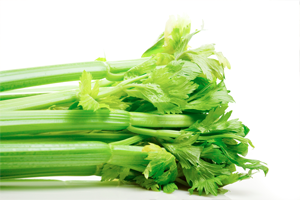Celery and Celery Seed
 The use of celery dates back centuries and was first identified in the Mediterranean and used as an aphrodisiac by the Greeks and Romans. They thought celery was somehow magical and was associated with the underworld divinities. It was often buried with the deceased and used as a prize for the winners of the Greek and Roman games. The Egyptians also valued celery. It is said that it was buried with King Tut to assist in his journey to the next life.
The use of celery dates back centuries and was first identified in the Mediterranean and used as an aphrodisiac by the Greeks and Romans. They thought celery was somehow magical and was associated with the underworld divinities. It was often buried with the deceased and used as a prize for the winners of the Greek and Roman games. The Egyptians also valued celery. It is said that it was buried with King Tut to assist in his journey to the next life.

